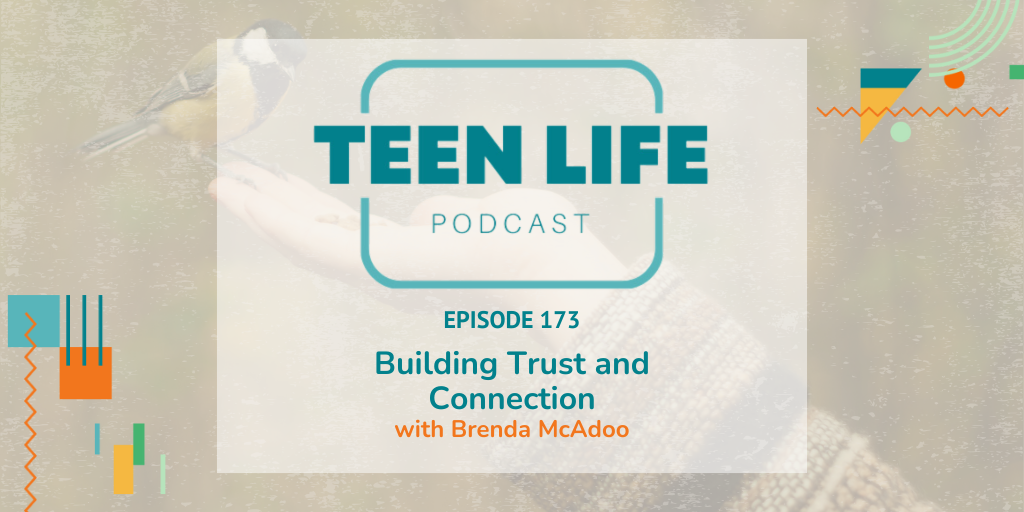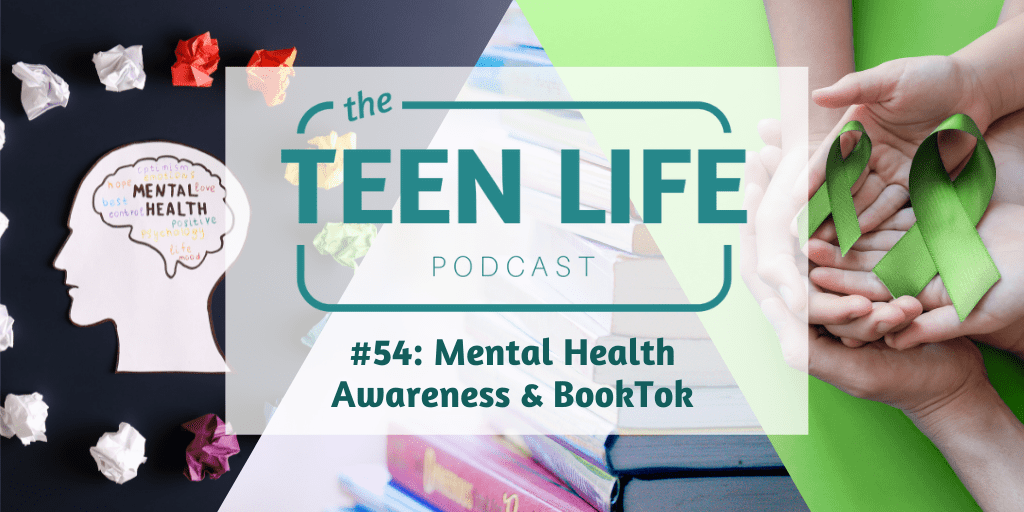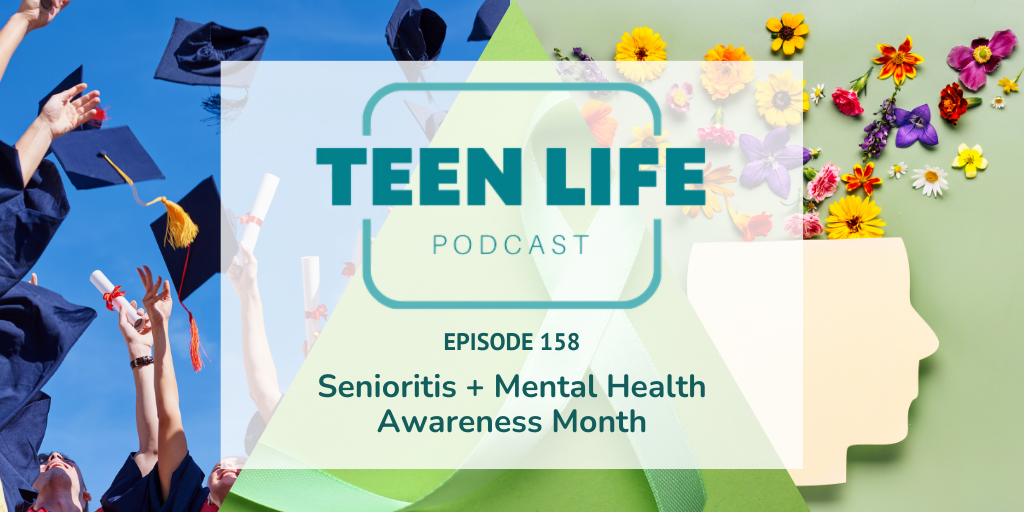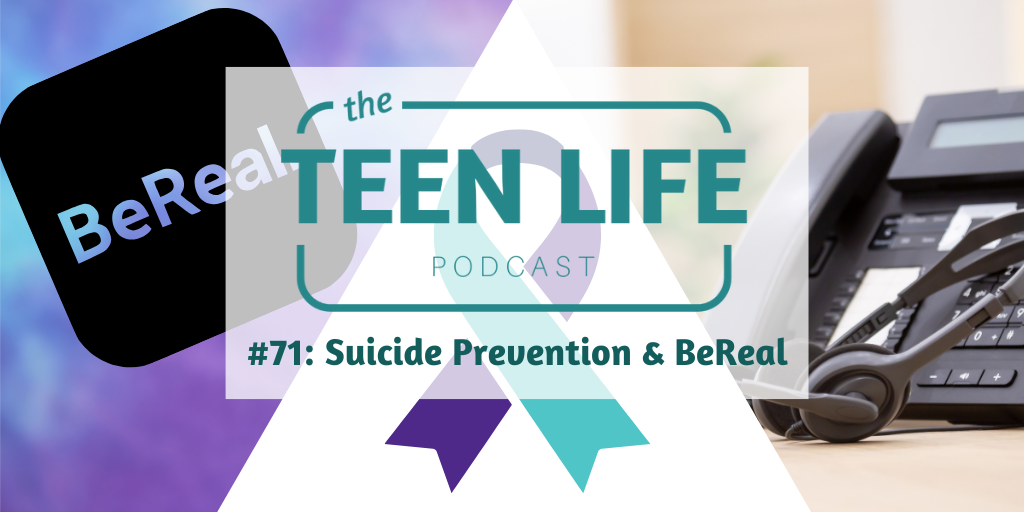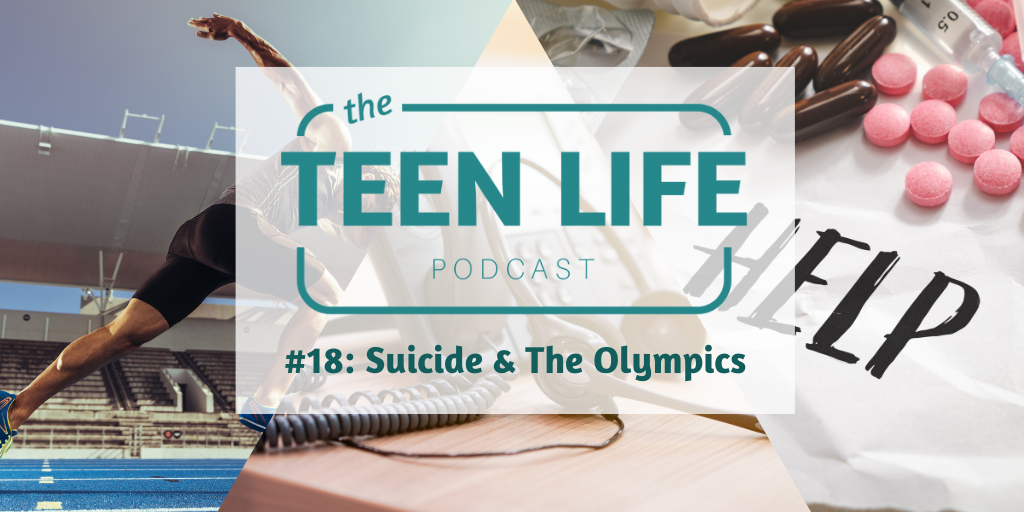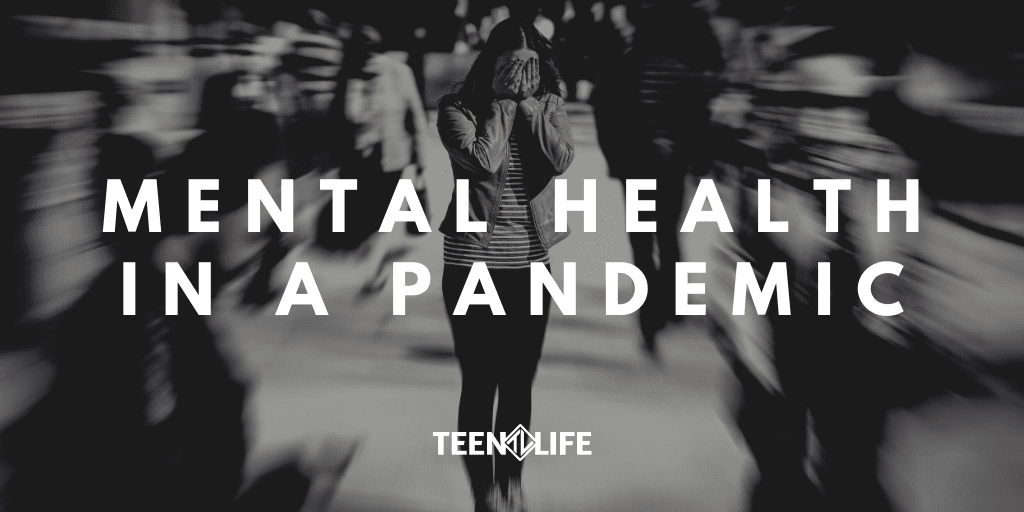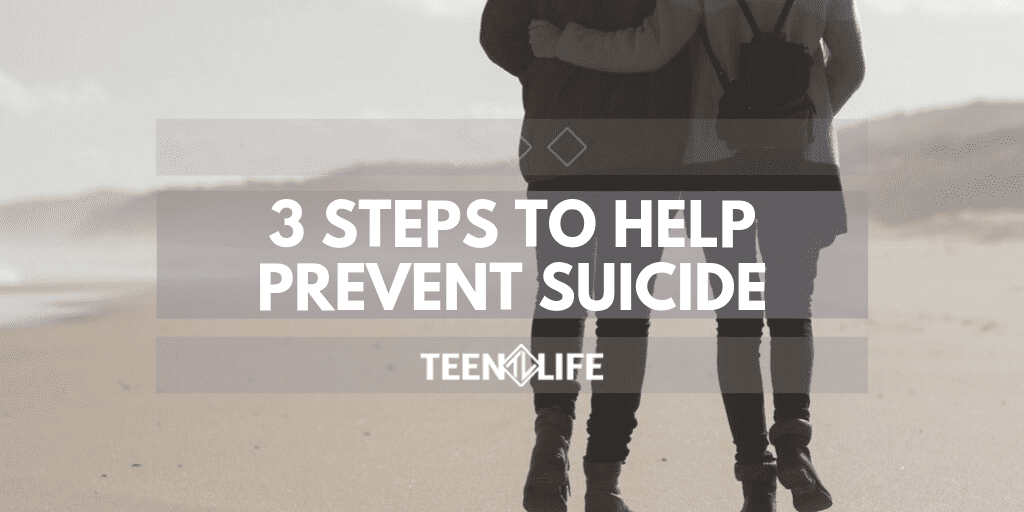
When Teens Refuse Help | Ep. 176
Podcast: Play in new window | Download
How can we encourage teens to seek help when they just don’t want to?
Sometimes the young people in our lives are clearly struggling, and it’s heartbreaking to watch them turn away from the support they need.
We’ve been there, too.
What do you do when a teen refuses help? We explore why they might be reluctant, and more importantly, how we can create the kind of connection and environment that makes seeking help feel safe and empowering.
Key Question
How can I encourage a teen to get help who doesn’t want help?
What We Cover
00:00 Understanding Teen Resistance to Help
03:04 Building Trust and Support
06:00 Normalizing Help-Seeking Behavior
09:01 Empowering Teens with Choices
12:06 Navigating Safety Concerns
14:54 Resources and Final Thoughts
Why Do Teens Refuse Help?
Teens may resist getting help for a variety of reasons, including:
Fear of Judgment
They worry about being seen as weak or “broken.”
Lack of Trust
Past experiences with adults minimizing their feelings make them hesitant.
Desire for Independence
Admitting they need help can feel like failure.
Unfamiliarity with Help
Therapy, counseling, or even just talking to someone might feel intimidating.
Perspective Shift
Instead of saying, “You need help,” try “You deserve support.”
Strategies to Encourage Help-Seeking
Build Trust Before Pushing Help
Rather than lecturing, focus on listening first.
Teens are more likely to open up when they feel heard and understood.
Instead of saying, “You should talk to someone,” try asking, “What would help you feel better?” This shifts the conversation to their perspective and gives them agency in finding a solution.
Validate their emotions by acknowledging their struggles: “That sounds really tough. I can see why you feel that way.” Simply feeling understood can be a powerful first step.
Normalize Help-Seeking
Help teens see that reaching out for support is normal and healthy.
Share personal stories about times when talking to someone helped you through a difficult time. For example, you might say, “I’ve been through hard times too, and talking to someone really helped.”
Comparing mental health care to physical health can also be effective: “If you broke your arm, you wouldn’t hesitate to see a doctor. Our minds deserve the same care.” These small shifts in perspective can help reduce stigma and make getting help feel more natural.
Give Them Choices
Teens often resist when they feel forced into something, so offering choices can help them feel in control.
You might ask, “Would you rather talk to a counselor at school or someone outside of school?” or “Do you want to read about coping strategies first, or would you prefer to talk to someone?”
If they’re not comfortable talking to you, explore who they might trust—a coach, teacher, youth leader, or older sibling. Sometimes, connecting them with a mentor or peer support group can be a good stepping stone toward professional help.
Remove Barriers to Getting Help
Even when a teen is open to getting help, obstacles can make it feel overwhelming.
Assist them in finding a therapist who matches their needs, whether that’s in terms of age, gender, or personality fit. If they’re anxious about the process, offer to go with them to an appointment or sit nearby while they call a helpline.
Letting them know what to expect from counseling or therapy can also ease their concerns and make the experience feel less intimidating.
Keep the Door Open
If they say no today, that doesn’t mean no forever.
Reassure them with something like, “I’m here for you whenever you’re ready—no pressure.” Continue checking in regularly with simple, non-intrusive questions like, “How are you feeling this week?”
By maintaining an open line of communication, you show them that they have a steady source of support whenever they’re ready to take the next step.
TL;DR: Practical Takeaways
When their safety is at risk…
If they’re self-harming, talking about suicide, or in an abusive situation, stepping in may be necessary:
- Say: “I care about you too much to ignore this. Let’s figure this out together.”
- Give them a deadline to tell a parent or trusted adult first. Offer to go with them if needed.
- Know your resources: hotlines, school counselors, crisis support options.
Some Last Thoughts
Every teen deserves to be seen, heard, and supported—even when they push us away. By approaching with empathy, patience, and consistency, we can help them take brave steps toward healing and growth. Your role as a steady, caring adult matters more than you know. Keep showing up—you’re making a difference.
Have a question or a topic you’d love to hear about? Reach out on social media or email us at podcast@teenlife.ngo.
Links & Resources:
- The Society for Adolescent Health and Medicine: Mental Health Resources for Adolescents and Young Adults
- The Mental Health First Aid: Five Ways to Support Your Teen’s Mental Health
- 988 Suicide & Crisis Lifeline
Read Episode Transcript
Karlie (00:00)
How can I encourage a teen to get help who doesn’t want help? So this is a big question. I feel like especially coming off the episodes with Brenda where we talked about connecting with teens and conflict and how to help de-escalate. Those are all great tools, but sometimes you use these tools and a teen will look at you and be like, yeah, no, I don’t want help or.
refusing or just being like, I’m fine. I feel like we also get that a lot. We’re not necessarily they know that they need help and are saying no, but where they pretend like everything is fine and they don’t need help. And so today we’re going to kind of talk through this, but first of all, Caleb, well, let’s address the missing elephant in the room. Of we’re missing Tobin. We do miss. I know we do miss you, Tobin.
Caleb Hatchett (00:27)
Mm-hmm.
Yeah.
be the same without him but we carry on we carry on for you the viewer
Karlie (00:47)
Tobin is home with his new baby girl and so we’re so excited that he gets to do that and he will be back with us before too long. for now you get me and Caleb for a few weeks.
Caleb Hatchett (00:52)
Yeah.
Sorry, you’re
stuck with us for the next few weeks. So buckle up. Listen, I know you’re probably like, maybe I’ll skip the three. Who knows what will be said, you know? So not saying Tobin necessarily grounds us, but like we might feel the need to fill the void. Who knows? Who knows? So, the, the, start off this episode though, you know, we have to ask the question, why would teens refuse help? And as being
Karlie (01:08)
So I was going to be listening going like, no.
Mm-hmm.
Caleb Hatchett (01:23)
As being someone who growing up, think fell into this boat of refusing help. Yeah. I, you know, I think back to, know, trying to learn how to ride a bike or trying to learn how to ski, anything that like, it was very clear and it wasn’t even necessarily life situations. was like, Hey, Caleb, you literally don’t know how to ski. And my parents would try to tell me and I’d be like, I know, I know.
Karlie (01:29)
You’re a fuser of help.
That was a classic Caleb phrase.
Caleb Hatchett (01:52)
I literally didn’t know,
but that was a coined phrase by me was, know. And it was stemmed out of kind of this idea that, you know, I don’t want to be viewed as someone who needs help, or I don’t want to be viewed as someone who isn’t capable. And so I think for a lot of teens, it stems out of that. Making it.
Karlie (02:05)
Mm-hmm.
Right.
Caleb Hatchett (02:14)
having people look down on them, maybe their fear of judgment, worrying about being seen as weak or broken. Even for some other teens, it could just be a lack of trust. With their experience and their life experience, they haven’t been given any reason to trust adults. And so why should they trust you to help them? They’ve gone so long with only leaning on themselves.
Karlie (02:25)
Mm-hmm.
Caleb Hatchett (02:38)
And so then it also leads into this feeling like they, they can and should handle it alone because they crave independence. And again, don’t want to admit failure that I actually can’t do it alone.
Karlie (02:47)
Great.
Well, I think you
hit the nail on the head when you said like that feeling of I want to be viewed as capable. And I’m sure we’ve talked about it on the podcast. And if so, I will link the episode in the show notes, but independence is one of the main tasks of adolescence. So that’s what they’re gaining. That’s what they’re looking for. That’s where like a lot of respect and the pushing of boundaries comes in. And so
Caleb Hatchett (02:58)
Yeah.
Mmm.
Karlie (03:16)
If they feel like that independence is threatened because they’re having to get help, or especially if they feel like you’re forcing help on them, they’re going to kind of stiffen at that and be like, no, I can do this. I’m going to figure this out on my own, even if they think in their back, in the back of their head, like, this is probably going to go horribly, but I’m going to prove a point right now and I’m going to, yes. And then I also think sometimes teens don’t even know really what help looks like, especially if they don’t have parents who talk about this.
Caleb Hatchett (03:22)
Mm-hmm.
Yeah.
I’m do it to spite you. Yeah. Yeah.
Hmm.
Karlie (03:45)
If they’ve never been, I think the more and more I do teen life groups, realize very few teens are in small groups. If they’re not going to a church where they’re part of a group like that, where we open up and we share feelings and we accept feelings, then they’ve maybe never been in an environment where they’re sharing their story or sharing challenges and having someone speak into that. If they don’t have parents who are asking questions and checking on them,
Caleb Hatchett (04:05)
Mm-mm.
Karlie (04:12)
That’s just something that hasn’t been modeled to them. And so if they don’t know what it looks like, that is an unknown that they’re not willing to step into. And then you’re even taking it up a notch of if you’re trying to get them therapy or counseling or rehab, any of those, that’s even bigger. And then they’re like, no, I don’t even want to touch that.
Caleb Hatchett (04:20)
Yeah.
Yep.
That’s one of the things for me starting out as a student minister that like I had to learn a bit was like this idea of small groups of opening up of talking about your feeling sharing is a learned thing. Cause I mean, I grew up, you know, in the church.
Karlie (04:45)
Mm.
Caleb Hatchett (04:49)
Like in small groups, D groups, devotional groups, as they are called in middle school, high school, we’re like ingrained into everything that we did. And so it was kind of this learned behavior of, you know, we’re going to have group and we’re going to talk about a story and hopefully towards the end, be able to talk about some of your feelings. Sometimes I wasn’t good at it, but it was at least something that I knew was a, was a norm.
and to be expected of me. So whenever I started out as a student minister and the students that I kind of inherited hadn’t done small groups, it’s like it was, and it kind of still is like a learned experience and there’s growing pains. And it’s this idea of, I’m not used to letting people know the way I feel of being vulnerable. And yeah, they need to see it modeled. But what, what, what
Karlie (05:23)
Right.
Mm.
Mm-hmm.
Caleb Hatchett (05:40)
needs to happen for us to start building that trust and start modeling that for students who really don’t want the help.
Karlie (05:49)
Right, well, and I think just if you’re thinking about a perspective shift for this, instead of you need help, which to me makes me think you think something’s wrong with me. You think I’m broken. You think I can’t do it. Even it’s shifting of like, you deserve support. Like you deserve support. You deserve every resource I can give you. And this is another resource that I can give you to help.
Caleb Hatchett (06:09)
Hmm.
Karlie (06:17)
might shift that language a little bit, even if you’re thinking, even if you don’t say that out loud, even if you’re thinking that in your head of not like, I’ve got to fix them, but like, hey, I’m going to support them. And that just looks a little different and feels a little different. But like you’re saying, Caleb, the first step is building trust because if you don’t have a relationship with them and they don’t trust you, if you are trying to get them help, they’re probably not going to take that well. Like they’re just not.
Caleb Hatchett (06:21)
Yeah.
Yeah.
Yeah.
Mm-hmm.
Yeah. And I think too,
that idea, yeah, you support, like I’m here with you. And, know, I think kind of this idea of like, I’m on your side. Like, I’m not, I’m not working against you. Like I’m, I’m on your team. I’m on your side. Okay. And even though.
Karlie (06:47)
Mm-hmm.
Ooh, I like that. Mm-hmm.
Caleb Hatchett (07:01)
Maybe what we want for you might be different. Like you need to know everything of what I’m trying to do and speak for you stems out of this fact that I’m on your team. I’m on your side. I’m here to support you. But with that, there has to be trust. Cause if there’s not trust, then there’s, they’re not going to take you at that word.
Karlie (07:11)
Mm-hmm.
Mm-hmm.
Caleb Hatchett (07:22)
Right? Like they have to trust you in order to believe that you are on their side. so, build trust, like model that model that you are on their side. Don’t lecture is a big one. Like don’t tell Lee. have to listen first.
Karlie (07:32)
It’s easy, yeah. Listen.
And you did this naturally, Caleb, but I want to point it out for the listener, using plural language of we, like what can we do to help? How can we move forward? Puts you on their side instead of you, you, you, pointing fingers of we, we’re in this together, we’re a team. Try to use we language when you’re talking to them and validate their feelings. listen, like Caleb’s saying, don’t lecture, listen.
Caleb Hatchett (07:43)
Mm.
Yeah.
Karlie (08:03)
And you can say, man, that sounds really tough. How can we help? Where can we move forward and maybe start there of asking them what they need before you just straight up say, I think you help. I think you need, you need a professional like of ask. Yeah.
Caleb Hatchett (08:15)
Yeah. You need, you need help.
But I’m here, I’m on your team, but you need help, yeah.
Karlie (08:25)
Asking that and we’ve kind of talked around this too, but normalizing help seeking So if you have done that in the past, you don’t have to get into details but saying like hey, you know what a few years ago I went through a really rough time too and I had to talk to someone about it or I’m not This is me personally. I’m not good at asking for help It’s easier for me to help others. And so it’s okay to for sometimes I’ll admit that when I’m in my teen life groups because one of the weeks we talk about stress and what we can do is
Caleb Hatchett (08:30)
Mm-hmm.
Yeah.
Karlie (08:54)
And I will often admit I’m really bad at this, but I need to be better at telling the people in my life, here’s what I’m struggling with and here’s how you can help. And even modeling to them like, it’s not always easy and don’t make it seem like, just it’s fine. I go to counseling all the time. That’s not a big deal. Even admitting some of that tension of it’s not always easy to do that.
Caleb Hatchett (09:02)
Mm-hmm.
Yeah. Yeah.
I was going to say of like they build on each other right if you’re trying to to build trust they need to know that you’re a safe space someone that listens and cares like
Karlie (09:26)
Mm-hmm.
Caleb Hatchett (09:29)
cares about what they say. So that’s we’re saying, man, like, I’m sorry. And then, yeah, normalizing this help seeking and being vulnerable as well as on your end. And yeah, don’t come at it from a man. I’ve been through this too. Here’s how I got through it. And, you know, like, look at me now. I’m awesome. Like you can get to me, but like sit in it with them for a second and just be like, you know what? I understand where you’ve been and get vulnerable with
Karlie (09:46)
Hmm.
Caleb Hatchett (09:56)
Here’s my life experience. Here’s the ways that, truly, like I didn’t know the way out and have experienced where you’ve been, but you know, also, yeah, you know, model for them. Here’s the steps that, that I took in order to help myself get out. Cause it’s not okay just to stay there. And so how can we,
Karlie (10:15)
Mm-hmm.
Caleb Hatchett (10:17)
We’re not the same person, but what are the steps that we can take to get out? And then, yeah, leads us onto the next one of giving them choices. Don’t make them seem like they’re pigeonholed or that you are telling them what to do. If the team doesn’t want help, I would say teens in general, even if they do want help, a lot of times don’t just like being told what to do. so giving them choices, you know, it directs them enough.
Karlie (10:39)
Yeah.
Caleb Hatchett (10:43)
But again doesn’t feel like you’re necessarily telling them what to do
Karlie (10:48)
Right? So it could even be like, if you are asking them a question, hey, do you want to talk about this with me? Is there another person that you feel is trustworthy that you could go to? Do you feel like you need therapy or counseling? Do you want me to go with you the first time? I, like offering options like that, where like you’re saying, Caleb, you’re not just saying, here’s what you need to do. And that’s where being curious,
Caleb Hatchett (10:57)
Yeah.
Mm-hmm.
Karlie (11:17)asking questions of even what do you think would help? What do you think would make this better? Do you have a friend who’s done something that has been beneficial and what did they do? Get them outside of themselves to think through things or do you need coping strategies? Do you want me to give you my advice or can I send you a couple articles or do you want to ask around and then we could come back next week and talk about it? And that is something that
Caleb Hatchett (11:28)
Yes.
Karlie (11:42)
can help, maybe they don’t want counseling, but if there is a school counselor that has a group that’s going on, something like Teen Life or another support group, maybe that feels a little more accessible. It’s on their campus or not having to leave. Or that question, we love to ask the question of just who do you trust? Who is an adult that you feel like you can go to right now? And it doesn’t have to be me. And honestly, I’m okay if it’s not me, but who is someone and can you go to them first?
Caleb Hatchett (12:05)
Mm-hmm.
Karlie (12:10)
and ask them, but let them think through that. Especially I think for parents, instead of saying, are the three people that you can go talk to and giving them those people, ask and let them rely on the people that they feel like they trust.
Caleb Hatchett (12:17)
Yeah. Yeah. And this idea of giving them choices of prying, think from, I think from me and my experience is trying to get them to come to the conclusion on their own. Cause I mean, the frustrating thing, I’m not a parent. would assume this holds true for parenting too. given the times that I’ve told my father, you know, that he has told me something time and time again.
Karlie (12:36)
Mm-hmm.
Caleb Hatchett (12:47)
Hey, Caleb, you got to keep your car clean. Like whatever, like it helps. What? Okay. Sure. But if I come to that conclusion on my own and I see that in action, it’s like, man, I’m genius. And you know, beating my dad just beating his head. And like, I told you, I told you, how could you not see it? But if a teen comes to that conclusion on their own,
It gives them, it helps them understand the reasoning and the motivation behind the why. And again, it also gives them the sense of independence and accomplishment. so, you know, if you’re able to, to walk with them and alongside them of instead of necessarily telling them what to do, walk beside with them and pry it and keep asking questions. Okay. Like why, who do you want to go to if it’s not me for help? And if they give you an answer.
Karlie (13:14)
Mm.
Caleb Hatchett (13:36)
help them realize and ask questions like- is this person trust-worthy? You know, can you really go to them? Why do you think that they’re a good person to go to? And just help them process and come up with their own reasonings of, you know, help them think through it. Cause they might also come to the conclusion of, you know what?
Karlie (13:41)
Mm-hmm.
Caleb Hatchett (13:53)
My middle school friend might not be the best person to go to for this important life advice. You’re right. But if they reach that conclusion on their own, they’re more likely to do it than if you tell them.
Karlie (14:04)
think you’re exactly right, Caleb, because if I’m thinking of, for example, a student that you really feel like needs therapy or counseling, and you force them to go, how much more would they get out of it if they are bought in and think, yeah, this is something that will be beneficial? First, I am forced to do this, and now have to go. And so that is something that is different.
Caleb Hatchett (14:11)
Mm-hmm.
Yeah.
Right.
Karlie (14:28)
to kind of think through how can I go about this in a way that you’re right, asking questions to get them to come to that conclusion on their own without being manipulative, but just like, hey, let’s ask some questions and maybe they can figure this out. And sometimes that looks like I talked about earlier, if they have never heard of or been modeled for asking for help counseling therapy, maybe that is letting them know what to expect.
Caleb Hatchett (14:33)
Mm-hmm. Right.
Mm-hmm.
Hmm.
Karlie (14:53)
Hey, do you know anyone that’s gone to counseling? And if they say no, be like, okay, here’s kind of what you can expect from that. This doesn’t mean you have to go, but I just want to give you all the information up front. It’s probably not what you think. It’s not laying back on a couch with a box of tissues and sharing your whole story. A lot of times it’s activity driven and you can walk them through that so they have a better idea of what to say. And then finally, I think for this too, make sure you’re keeping the door open.
Caleb Hatchett (15:12)
Mm-hmm.
Mmm.
Karlie (15:23)
If they say no to help, that doesn’t mean no forever. So even sometimes if you have a relationship with a student and you know, I’m pushing too much, this is not going anywhere. They have dug in their heels and there is going to be no help instead of just being like, no, I’m going to make you see that you have to have help. Take a step back and say, I’m here when you’re ready. Hey, let’s come back to this in a week. Let’s see how you’re feeling and
No pressure. And then the next week, hey, how are you feeling this week? Do you still feel like you have it under control? What can I do to help? And continuing to check in, not just saying, well, they said no, so I’m done and I’m backing off. Continue to go to them, but at the same time, don’t pressure them to do anything.
Caleb Hatchett (15:58)
Mm-hmm.
Yeah. And I think that the important thing there, like what you said of keeping, keep pursuing, like don’t, again, don’t necessarily be like, will help you. You will receive my help. Um, but this idea of, know, I think sometimes I’ve even fallen to the trap of, man, I’m giving them time. I’ve given them opportunity and opportunity for me to help them and they don’t want it. So I’m just going to let them come to me when they’re ready. There’s a balance of that. And.
Karlie (16:17)
you
Mm-hmm.
Caleb Hatchett (16:36)
pursuing and making sure that they know that you’re there. Of, hey, they might not want my help now, but I’m going to make sure that they know that I’m here when they’re ready. Instead of just being like, you know, I’m going to sit passively. They’ll come to me, continue to check in. Even if they don’t want your help. There’s nothing wrong with saying, how are you? How is the situation that you’ve, you’ve talked to me about? Cause it shows you care. It shows that you listened.
Karlie (16:37)
Mm-hmm.
Caleb Hatchett (16:59)
And yeah, again, even going back to everything, we’re here to help. And I don’t want it to come across as we’re trying to manipulate the, you know, a student or a teen into receiving help from us. Again, help them process, help. They probably will come to a conclusion that isn’t one that, that you had in mind, but if you can think through it with them, it’ll also help you understand where they’re coming from more as well.
Karlie (17:22)
Mm-hmm. That’s good. Okay, so for just kind of some final takeaways, one thing I do want to say, we are talking about not forcing help, but if their safety is at risk. So if you were talking to a teenager who is self-harming, who is talking about suicide, who is in an abusive situation, first of all, no, they’re probably all very similar, but like I know in the state of Texas, if a student discloses abuse to you, you have to report that.
Caleb Hatchett (17:35)
Mm-hmm.
Karlie (17:50)
You have to like, and it’s not that difficult. Please reach out to Teen Life or one of us if you need help, but you can also do a search for it and it will come up with what you can do. They, there are some instances where they need help. If that is the case, or if you feel like it’s something bigger where you found out that they’ve been, especially if you’re not a parent and you found out something like they’ve been doing drugs or they have been
engaging in activities with a boyfriend or girlfriend that you know their parents would not approve of. Something that you know they need to tell a parent or they need to talk to someone else about this and I can’t handle this anymore. Here’s an example of what I would say, which would be, I care too much about you to ignore this. So we need to figure this out together. And that could be you need to tell a parent or I have to report this for your safety.
Caleb Hatchett (18:23)
Mm-hmm.
Karlie (18:43)
let’s do this together, or would you like me to come with you? I will be part of that conversation with the parent if you are too scared to tell them or another trusted adult. And so not taking away that choice, let them decide, give them a deadline, say, hey, by Friday, I’m gonna check back in. And if you haven’t told them, I need to tell your parent, but I wanna give you the opportunity to tell them first.
Caleb Hatchett (19:06)
Yeah.
Yeah.
Karlie (19:08)
and so kind of giving them the opportunity to do that, but at the same time going, this is a big enough deal that I’m, I care about you too much to ignore it. And sometimes that will, that honestly will put a strain on the relationship. Your relationship with that student might never be the same, but if it is something where you feel like their safety or their future, or there are some choices, I’m pretty sure Brenda said this, that you can’t come back from. And so sometimes as an adult, you have to make the decision that I have to step in here to try to stop.
a situation that is just going to get worse and could potentially ruin their life. And then finally, and I’ll post some links as well to more national hotlines, but know your resources. So if a student comes to you, kind of have in your back pocket, here are some people I would talk to. Here are maybe some, here are the school counselors numbers and let me help you find them. Here is a crisis hotline.
Caleb Hatchett (19:40)
Yeah, that’s good.
Karlie (20:03)
number that you can call. are texting options where they don’t even have to get on a phone. They can text in, they can chat online, just something that maybe if they want something anonymous and don’t want to talk to someone in person, better help. are online telehealth counseling deals where they’re not having to go to a counselor’s office. And so know your resources. But as we always say, it’s about connection. It is about telling them, I care enough about you. I see you.
Caleb Hatchett (20:03)
Mm-hmm.
Yeah.
Karlie (20:32)
that I want you to have the support and the resources that you need.
Return to add a new line

Karlie Duke
Communications Director

Caleb Hatchett
Podcast Host
Karlie Duke | Director of Communications
Karlie has always had a heart for teenagers. Through her role at Teen Life, she loves to showcase the amazing stories coming out of Support Groups, but she is especially passionate about helping adults and teenagers find connection. Karlie has a BS in Communications with a minor in Family Studies from Abilene Christian University.
Caleb Hatchett | Podcast Co-Host
Caleb loves helping teenagers take ownership of their faith and relationships. He graduated from Abilene Christian University with a degree in Youth and Family Ministry and is currently Student Ministry Director at Jenks Church in Oklahoma.









